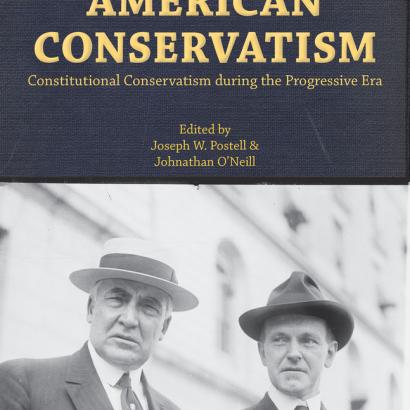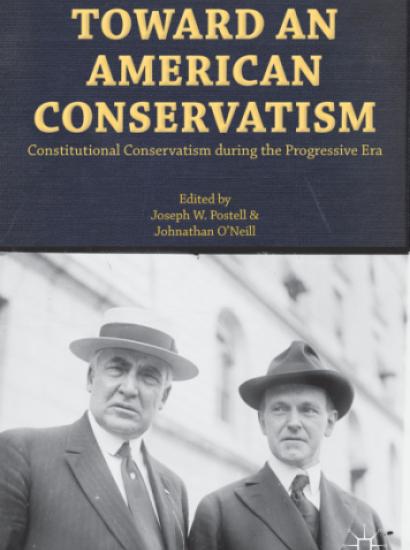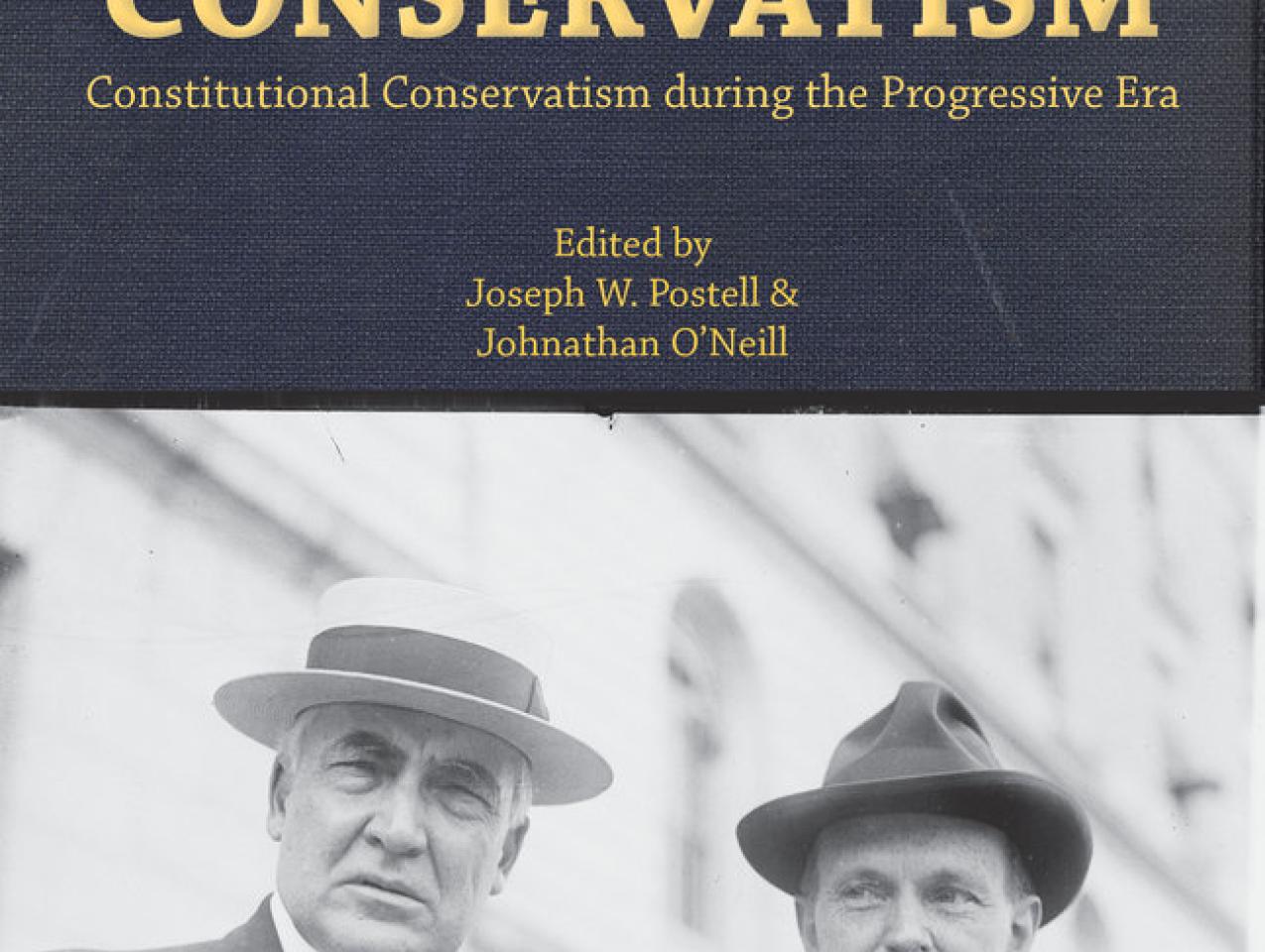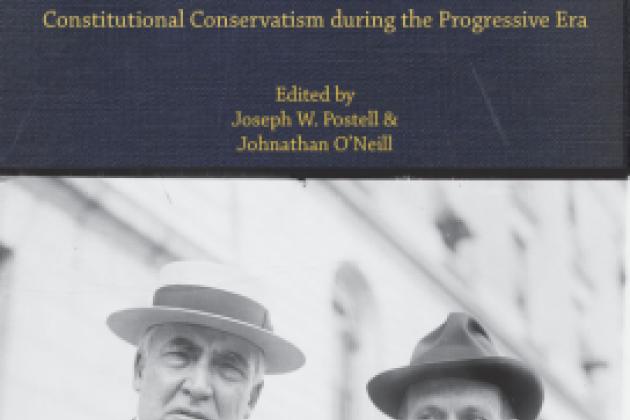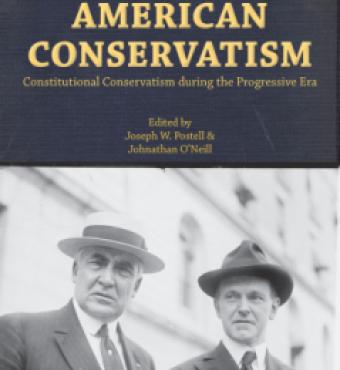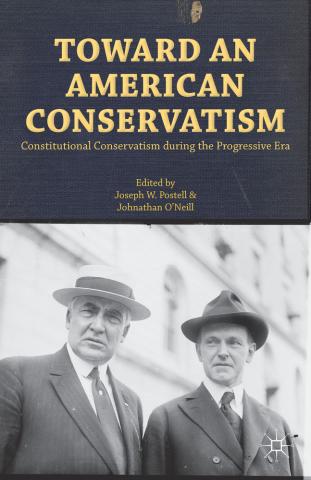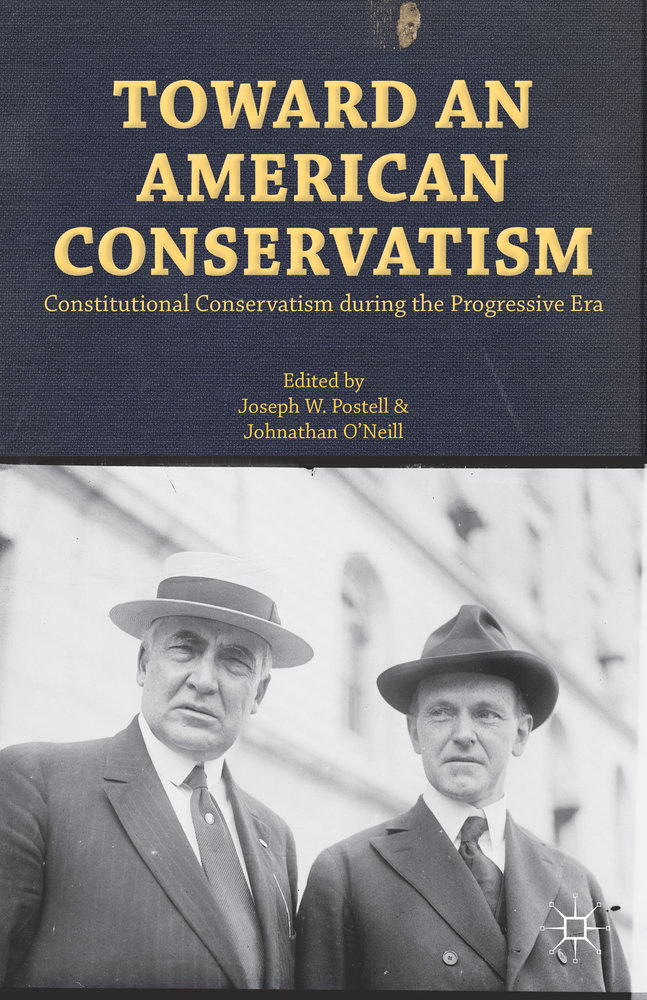
Toward an American Conservatism, a new book edited by Joseph W. Postell and Jonathan O’Neill, studies conservatism in the Progressive Era; it features a chapter written by Hoover research fellow and counselor to the director David Davenport and Gordon Lloyd entitled “The Two Phases of Herbert Hoover’s Constitutional Conservatism.” The premise behind the book is that, although conventional wisdom credits the Progressives with “winning” that era, conservatives and conservatism from the time have been underexplored, despite their ongoing influence in modern politics, and the book seeks to remedy this break in the historical trajectory.
Davenport and Lloyd’s chapter is more scholarly and more historically based than their recent Hoover Press book, The New Deal and Modern American Conservatism. For the chapter, Davenport and Gordon extended their research farther back into the 1920s, examining Hoover’s tenure as Secretary of Commerce from 1921 through 1928, in addition to his presidency and postpresidency. Davenport and Gordon sought to give a nuanced picture of the conventional wisdom, which depicts Hoover as a clear conservative in the 1930s, shocked by the excessiveness of the New Deal, but is less clear on his stance in the 1920s. Davenport and Gordon argue that, throughout the 1920s and 1930s, Hoover held constant to two core American values: constructive government and American individualism. Given the 1920s context of postwar reconstruction, with thriving innovation and an industrial boom, following those tenets required active leadership within the bounds of conservatism. The 1930s, with the subsequent New Deal and Hoover’s reaction, were a different time and required a different type of leadership.
To read the chapter in depth, or to read the other chapters in the book, you can purchase a copy here. To read more on how the debate between Hoover and Roosevelt over the New Deal led to the beginning of modern conservatism, you can also purchase the Hoover Press book here.







